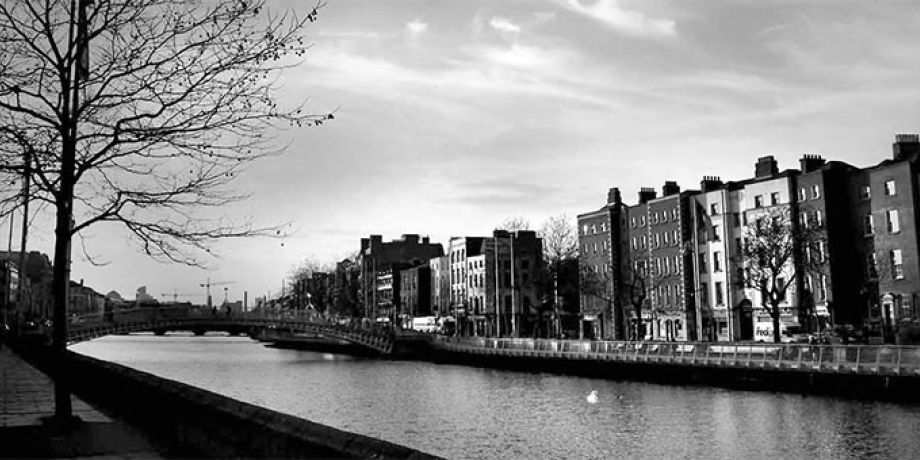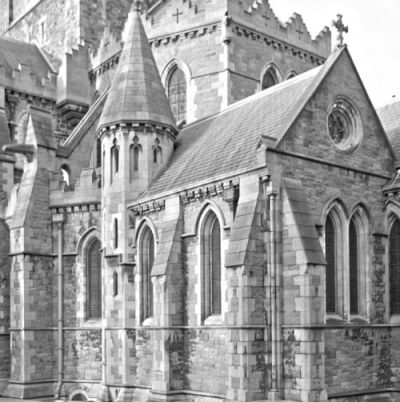
A Diversity of Faith Communities
Over recent decades Irish society has been transformed by the number of people who have come from all over the world to make their lives here. They have brought with them a rich diversity of cultures and a diversity of faith communities. The 2016 census showed a large increase in the number of Hindus and Muslims, as well as members of the Romanian Orthodox and various Pentecostal Churches. In addition, there are very active Sikh, Baha’i, Buddhist and Jewish communities.

It was in response to this rapid change that the Irish Council of Churches asked Adrian Cristea in 2010 to explore how churches here could respond in a welcoming and positive way to these new communities. And so began a process that lead to the founding of what is now the Dublin City Interfaith Forum. Around the same time that Adrian, who is from the Romanian Orthodox tradition, began exploring with leaders from other faith communities how they might all work together, the Dublin City Council was in the process of developing a diversity strategy for the city.
At the heart of this strategy lies the belief that cultural diversity is a strength and not a problem. The challenge for the city council was how to make that belief a reality. A twophase process of dialogue thus began between members of the different faith communities themselves, and between the faith communities and the city council. Out of this process, the Dublin City Interfaith Forum was formed, and the process shaped the basic dual orientation of the forum. It looks to bring different communities together to learn and appreciate each other’s religious traditions, but it also brings the communities together with the wider community.
The Dublin City Interfaith Forum looks to bring different communities together to learn and appreciate each other’s religious traditions, but it also brings the communities together with the wider community.
The Forum consists of representatives of seven major world faiths – Baha’i, Buddhist, Christian, Hindu, Islam, Jewish and Sikh. Different traditions within faith communities are also represented. The forum’s approach to dialogue between faiths is one of different levels of encounter, often described as a dialogue of prayer, a dialogue of life, a dialogue of action and an intellectual dialogue. The dialogue of prayer has been very important for the forum. A program called Faith in the City has been critical to building up trust and respect. It involves one of the groups inviting others to their place of worship, where they explain what their faith means to them, speak about their rituals and prayer and share hospitality. This also extends to inviting each other to important days and festivals such as Iftar meals in the Muslim community, Jewish festivals, or the recent opening of a new Hindu center in Dublin. The forum also tries to hold a retreat day together a couple of times a year. The most recent took place at Dalgan Park, the home of the Columbans in Ireland.
The dialogue of life involves sharing together common challenges of life and living. It has helped us identify issues such as the lack of diversity in the pastoral care provided in hospitals, and the need for a more nuanced religious education curriculum. The forum is in dialogue with both the health and education sectors to improve these.
Hearing from different groups about their experience of racism or other discriminatory behavior based on their religious faith has led to a partnership with the European Network Against Racism working on a program to improve the reporting of such incidents and to build solidarity between people of all faiths to tackle the problem.
The relationship between faith and politics in Ireland has often been troubled and complicated.
The forum has close links with academic institutions such as Irish School of Ecumenics in Trinity College Dublin and the Chester Beatty Library, which holds rare and ancient manuscripts and artworks from the Christian, Islamic, Hindu and Buddhist traditions. Through these two institutions, participation is possible in events that stress the more intellectual side of interreligious dialogue.
The other important focus of the forum is dialogue between the faith communities and wider civil and secular society. From the very beginning, the forum has been clear that in this dialogue, the diversity of faith communities is not a problem to be solved, but that faith communities can contribute in a positive way to making society inclusive and welcoming. Further we believe that faith communities have resources within their traditions to face together challenges such as climate change and the building of a fairer society.
The forum was very proud to have all the member communities sign up to the Dublin City Interfaith Charter which pledges us all to work together for the common good and forms the basis for our continued and fruitful engagement with civic society and political institutions. The relationship between faith and politics in Ireland has often been troubled and complicated. The danger now is that the voice of religious communities gets pushed out of the public square completely. We hope that the dialogical approach of the forum will allow for new conversations to begin and for the building of greater understanding and respect between peoples of all faiths and none and will contribute to building a better Ireland.
Participation in and promoting of interreligious dialogue has been an integral part of the Columban understanding of mission for many years. We were delighted to be invited to be part of the forum, and our involvement with interfaith work is now a key part of our work in the Columban Center in Dublin city center. Members of the forum are deeply appreciative of the support given by the Missionary Society of St. Columban to its work. Situated in close proximity to a mosque, a Hindu ashram, a Buddhist center and other faith communities, the Columban Center in Dublin works closely with our friends in the forum. Together we try and tackle common challenges of living in the city and how we can improve our mutual understanding and support for each other.
Michael O’Sullivan has worked with the Columbans for over twenty years in the areas of mission education and justice advocacy. He is currently based in the Columban Center in Dublin where he is involved in the promotion of interfaith dialogue.